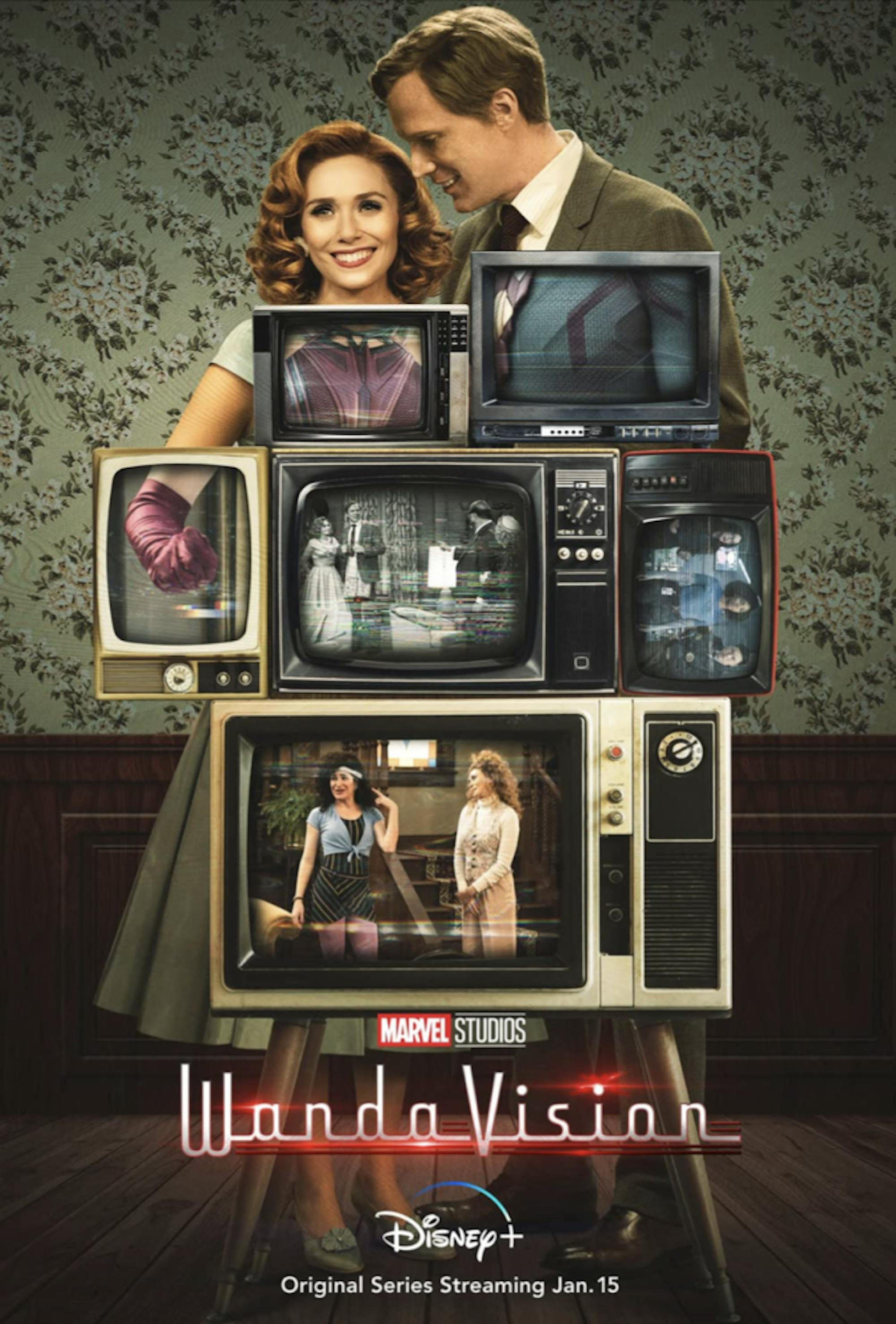Women dealing with trauma has become a more common trope in mainstream television — critically acclaimed series like “Fleabag” (2016–19) and “I May Destroy You” (2020–), for example, have dissected this subject. It is perhaps no surprise, then, that the Marvel Cinematic Universe should explore the same territory in its new series “WandaVision” (2021–).
The show follows Wanda Maximoff (Elizabeth Olsen), also known as the Scarlet Witch, living as a sitcom character with her husband, Vision (Paul Bettany). Each episode is done in the style of a newer decade of sitcom, starting with the 1950s, and drawing inspiration from classics such as “The Dick Van Dyke Show” (1961–66), “I Love Lucy” (1951–57) and “The Brady Bunch” (1969–74). The catch is, of course, that Vision died in "Avengers: Infinity War" (2018) and their life in suburban New Jersey is not real.
It is fitting that "WandaVision" should come out during the age of escapist COVID-19 viewing, where shows like “Bridgerton” (2020–) are king. After more than a year without Marvel content, viewers are desperate to transport back into its familiar, carefully constructed universe. Marvel has always offered a reliable distraction, and “WandaVision” is no exception. While its recognizable characters offer relief from the dullness of life in quarantine, its sitcom format both distracts from and builds toward the broader plot that introduces the franchise’s next chapter.
Centered around the very idea of escapism, “WandaVision” runs with this reputation to make its point. Wanda finds herself in a sitcom-reality, in denial of her grief. In weaponizing historical critiques of the lowbrow art form that is the sitcom, the show attempts to elevate the medium as a whole. For a franchise so well known for its movies, this approach is extremely impressive — rather than a Marvel movie split into nine episodes, “WandaVision” is fundamentally a television show.
While its commitment to genuine replication of various sitcom-era techniques is both smart and admirable, it becomes clear there was a reason these styles fell out of fashion. Disney+ made a smart choice releasing the first two episodes simultaneously — both are done in black and white and feature overly simplistic plots and laugh tracks cued by dated humor. What results is sometimes boring, with the only relief coming in the form of Easter eggs that reference other events in the Marvel Cinematic Universe and hint at a broader plot outside of their isolated community. Thankfully, these references become much more frequent in the following episodes, as the larger scheme is gradually unearthed, improving the show dramatically from the third episode on.
The sitcom approach is a bold choice for the franchise, which usually relies on dramatic fight sequences and computer-generated imagery. It allows a deeper dive into the psyche of a character who is perhaps overlooked. The show’s most powerful moments come when we see Wanda confronted with her real-life trauma. Instead of blowing up her problems with a wave of her magical hand, she participates in a delusional narrative that alleviates the burdens of being an Avenger and the pain of losing her love.
That said, with so much powerful media about women and grief already in existence, “WandaVision” feels a bit one-note so far, with five of nine total episodes currently streaming. We see Wanda stuck in denial, but that’s about it. Hopefully, by the time the series ends, we will have a more complex portrait of a grieving Scarlet Witch — one that sees her denial break down into something more nuanced and raw.






